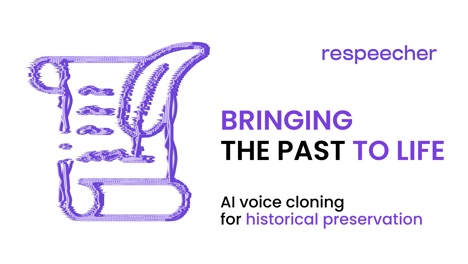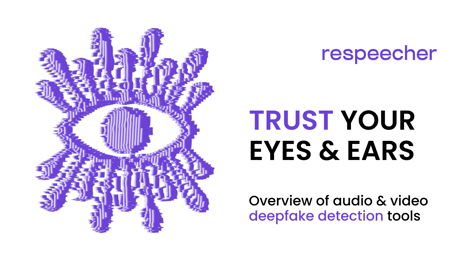What is Voice Banking and How Can It Help People with Motor Neurone Diseases

Motor neuron, or neurodegenerative diseases, usually result in the loss of some or all of an individual’s ability to speak. However, thanks to modern-day innovations, people afflicted with these diseases can retain the ability to communicate using their voice by turning to assistive technologies such as voice cloning and voice banking.
These generative AI technologies have drastically changed how people with these disabilities are able to function on a daily basis.
What are motor neuron/neurodegenerative diseases?
Motor neuron/neurodegenerative diseases are a group of pathologies that lead to the loss of the functional properties of the nervous system and the death of neurons. Despite the prevalence of these diseases, there is still no cure for the vast majority of neurodegenerative diseases.
There are many separate neurodegenerative diseases. Alzheimer's, Parkinson's, Huntington's, and amyotrophic lateral sclerosis are among the most well-known. Stephen Hawking had amyotrophic lateral sclerosis. The popular Ice Bucket Challenge was organized a few years ago to raise funds for developing drugs for this disease.
Those afflicted by neurodegenerative diseases gradually lose their ability to move and speak freely. The Healthcare industry is seeking to develop medicine and treatment capable of curing or slowing down the course of such illnesses. Still, today there are no proven methods of treating neurodegenerative diseases, and patients mostly have to focus on relieving their symptoms and improving their quality of life.
Many new ways of supporting patients with these diseases have been developed thanks to AI technology.
At Respeecher, besides creating solutions for laryngectomy patients, we work on projects for patients with neuromuscular diseases, such as Friedreich's Ataxia and ALS. We develop voice models and perform the service of voice banking as in this way patients can preserve their voice as symptoms progress. Incorporating AI ethics into our development processes ensures that these voice AI technologies are implemented responsibly and with consideration for the privacy and autonomy of the individuals involved.
What is voice banking?
Voice banking is the process of recording and preserving audio samples of a person's voice. For this, software records a patient's voice and creates a computer version so that a person can leverage it when they are no longer able to use their voice freely. This involves utilizing an AI voice generator to replicate the individual's speech patterns and vocal characteristics.
Usually, patients turn to voice banking once they are diagnosed with motor neuron disease. Recording someone’s voice before it starts changing is critical to successfully compiling an accurate voice modal while adhering to AI ethics.
Respeecher allows for developing accurate voice models from the samples the patients can provide. Sometimes patients have limited recordings available. However, for Respeecher, it’s not a big problem since the development of our tech allows us to develop voice models from a small amount of data. In a perfect situation, we would need 30 mins of recordings, but we can use less as well. Patients can also use voices from our Voice Marketplace, where they can access a wide variety of AI voices for their needs.
Thanks to our voice cloning technology, it is possible to create very natural-sounding voices without artificial robotic sounds. If a person can't use their voice, they can use a voice donor from relatives or friends.
People with Alzheimer's, Parkinson's, Huntington's, Friedreich's Ataxia, amyotrophic lateral sclerosis, and other neurodegenerative diseases can use Respeecher to replicate their voices and communicate more naturally. The voice model then can be used with text-to-speech applications in the Respeecher’s Voice Marketplace and allows to do message banking when a person completely loses the ability to speak. Additionally, Respeecher offers generative AI solutions for those needing alternative communication methods.
Respeecher’s healthcare direction
Respeecher has created voice solutions for different healthcare cases, such as giving voice to Michael York and helping patients who underwent larynx removal. Aside from laryngeal cancer, other disorders that are candidates for Respeecher's voice revival include Parkinson's disease, amyotrophic lateral sclerosis, multiple sclerosis, vocal fold paralysis, pharyngeal cancer, and dysarthria. The application of gen AI further enhances Respeecher's ability to provide tailored voice solutions for diverse healthcare needs.
As technologies, healthcare, and science are evolving at a blistering pace, restoring someone's lost voice is no longer science fiction. It's a reality. With Respeecher, patients can completely restore their voices, vocal quality, signature tone, and cadence using our advanced speech generator.
Our AI-powered algorithms can now recreate lost or ailing voices for anyone. People who can no longer communicate and share emotions using their voices can now communicate using their natural voices with Respeecher voice AI technology.
Respeecher Healthcare and Anna Bulakh, Head of Ethics and Partnerships at Respeacher leading the Healthcare direction, were nominated for the project of the year by the Berkeley World Business Analytics Award.
The healthcare applications of Respeecher’s platform are of paramount importance along with our ethics-oriented initiatives. The application of voice cloning and synthetic media demonstrates the unlimited capabilities of this emerging technology beyond the entertainment industry. This is a great example of generative AI for good application that improves the quality of life and maximizes the positive use of synthetic media. We are calling for global partners to join us in this journey and make the AI voice generator technology more accessible for the patients worldwide.
Anna Bulakh, Head of Ethics and Partnerships at Respeacher
FAQ
Voice banking is the process of recording a person’s voice to create a digital version using voice cloning technology. It helps patients with neurodegenerative diseases like ALS or Parkinson’s preserve their unique speech patterns, allowing them to continue communicating naturally as their ability to speak declines.
Respeecher’s AI voice generator uses voice cloning technology to create accurate, natural-sounding synthetic voices. It works by analyzing a person’s speech patterns and vocal traits, then replicating them in digital form, enabling patients to communicate using their preserved or AI-generated voices.
Yes, voice cloning technology can accurately replicate a patient’s natural tone and cadence by using recorded samples of their voice. This ensures that even after a person loses their ability to speak, they can still communicate using a voice that closely resembles their original one.
Generative AI solutions enable healthcare technologies like voice cloning to restore or preserve a patient’s voice. It can recreate lost speech patterns, providing assistive technology for patients with neurodegenerative diseases, enabling them to communicate more naturally with AI-generated voices.
Patients can access the Respeecher Voice Marketplace to choose from a variety of AI-generated voices, including synthetic voices and voice cloning options. They can use these voices for message banking or communication once they can no longer speak, offering greater flexibility in preserving their voice.
Respeecher incorporates ethical AI in healthcare by prioritizing patient privacy, autonomy, and consent. Voice models are developed responsibly, ensuring that voice cloning technology is used to enhance patients' lives, especially those with motor neuron diseases, while maintaining ethical standards.
Glossary
Voice banking
A process where a person’s voice is recorded and preserved using voice cloning technology and AI voice generators, helping those with neurodegenerative diseases communicate through speech synthesis and assistive technology.
AI voice generator
A tool using voice cloning technology and generative AI solutions to create synthetic voices, aiding in voice banking and assistive technology for neurodegenerative diseases.
Neurodegenerative diseases
Conditions like motor neuron diseases that cause progressive loss of function, often aided by voice banking, speech synthesis, and assistive technology.
Ethical AI in healthcare
The responsible development and use of AI voice generators, voice cloning technology, and assistive technology to support patients with neurodegenerative diseases.
Generative AI solutions

- voice synthesis
- voice cloning
- artificial intelligence
- AI voice synthesis
- artificial intelligence (AI)
- synthetic voice
- text-to-speech (TTS) synthesis
- voice synthesizing technology
- voice cloning technology,
- voice cloning software
- voice conversion technology
- Respeecher
- voice synthesizer
- Healthcare
- Respeecher super resolution algorithm
- AI voice generator
- Respeecher’s synthetic voices
- voice synthesis software
- AI technology
- Respeecher's AI-powered voice cloning
- neurodegenerative diseases
- voice banking
- Healthcare industry
- natural-sounding voices
- Michael York
- generative AI
- AI Ethics
- speech generator
- Respeecher for Business
- voice ai
- gen AI





